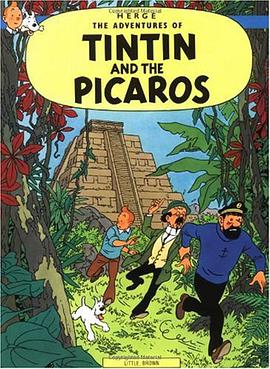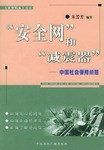

具体描述
Within the first parts of the autobiography, Mandela describes his upbringing as a child and adolescent in South Africa, and being connected to the royal Thembu dynasty. His childhood name was Rolihlahla, which is loosely translated as "pulling the branch of a tree," or a euphemism for "troublemaker."
Later in the text, Mandela describes his education at a Thembu college called Clarkebury, and later at the strict Healdtown school, where students were rigorously put in routines. He mentions his education at the University of Fort Hare, and his practice of law later on.
Within the second part of the book, Mandela introduces political and social aspects of apartheid in South Africa, and the influences of politicians such as Daniel François Malan who implemented the nadir of African freedoms, as he officially commenced the apartheid policies. Mandela joined the African National Congress in 1950 and describes his organization of guerrilla tactics and underground organizations to battle against apartheid.
In 1961, Mandela was convicted for inciting people to strike and leaving the country without a passport and sentenced to five years imprisonment. However, Mandela was shortly thereafter sentenced to life imprisonment for sabotage in what was known as the "Rivonia Trial," by Justice Dr. Quartus de Wet, instead of a possible death sentence. (p. 159)
Mandela describes prison time on Robben Island and Pollsmoor Prison. His 27 year tenure in prison was marked by the cruelty of Afrikaner guards, backbreaking labor, and sleeping in minuscule cells which were nearly uninhabitable. Unlike his biographer Anthony Sampson, Mandela does not accuse the warder James Gregory of fabricating a friendship with his prisoner. Gregory's book Goodbye Bafana discussed Mandela's family life and described Gregory as a close personal friend of Mandela. According to Mandela: The Authorised Biography, Gregory's position was to censor the letters delivered to the future president, and he thereby discovered the details of Mandela's personal life, which he then made money from by means of his book Goodbye Bafana. Mandela considered suing Gregory for this breach of trust.[1] In Long Walk to Freedom Mandela remarks of Gregory only that 'I had not known him terribly well, but he knew us, because he had been responsible for reviewing our incoming and outgoing mail.' [2]
Later on in his sentence, Mandela met South African president, Frederik Willem de Klerk, and was released from prison in 1990. Unlike his friend Anthony Sampson's account, Mandela's book does not discuss the alleged complicity of de Klerk in the violence of the eighties and nineties, or the role of his ex-wife Winnie Mandela in that bloodshed. Mandela became the South African president in 1994.
Mandela dedicated his book to "my six children, Madiba and Makaziwe (my first daughter) who are now deceased, and to Makgatho, Makaziwe, Zenani and Zindzi, whose support and love I treasure; to my twenty-one grandchildren and three great-grandchildren who give me great pleasure; and to all my comrades, friends and fellow South Africans whom I serve and whose courage determination and patriotism remain my source of inspiration."
The book won the Alan Paton Award in 1995, and is published in numerous languages, including an Afrikaans translation by Antjie Krog.
作者简介
Nelson Rolihlahla Mandela (Xhosa pronunciation: [xoˈliɬaɬa manˈdeːla]; born 18 July 1918 in Transkei, South Africa)[1] is a former President of South Africa, the first to be elected in a fully representative democratic election, who held office from 1994–99. Before his presidency, Mandela was an anti-apartheid activist, and the leader of the African National Congress's armed wing Umkhonto we Sizwe. The South African courts convicted him on charges of sabotage, as well as other crimes committed while he led the movement against apartheid. In accordance with his conviction, Mandela served 27 years in prison, spending many of these years on Robben Island. He is currently a celebrated elder statesman who continues to voice his opinion on topical issues. In South Africa he is often known as Madiba, an honorary title adopted by elders of Mandela's clan. The title has come to be synonymous with Nelson Mandela.
Following his release from prison on 11 February 1990, Mandela supported reconciliation and negotiation, and helped lead the transition towards multi-racial democracy in South Africa. Since the end of apartheid, many have frequently praised Mandela, including former opponents. Mandela has received more than one hundred awards over four decades, most notably the Nobel Peace Prize in 1993.
目录信息
读后感
评分
评分
评分
评分
用户评价
刚拿到《长途跋涉自由路》的时候,我并没有抱有多大的期望,总觉得这类回忆录性质的书籍,或许会显得有些枯燥,充斥着各种政治事件和陈述。然而,当我真正沉浸在这本书中时,我发现自己完全错了。作者的叙述方式非常引人入胜,他用一种非常坦诚和朴实的语言,讲述了他波澜壮阔的一生。书中描绘的那些场景,时而让我感到心潮澎湃,时而又让我黯然神伤。这不仅仅是一个人的故事,更是一个民族在追求解放道路上的缩影,它所承载的厚重感,让我不得不一次又一次地停下来,仔细咀嚼其中的深意。 书中对于细节的刻画,简直是达到了令人惊叹的地步。作者没有放过任何一个可能能够帮助读者理解那个时代背景的细节,无论是社会环境的描写,还是人物情感的细微之处,都显得那么真实可信。我尤其对书中关于他早期生活经历的描述印象深刻,那些朴素的童年,以及与家人朋友的互动,都为后来他所要承担的重担奠定了情感基础。而当他开始卷入政治斗争,面对越来越严峻的挑战时,那种从青涩到成熟的转变,在作者的笔下被展现得淋漓尽致,让我看到了一个领导者是如何在实践中被锻造出来的。 我之所以觉得这本书的意义非凡,是因为它让我重新审视了“自由”这个概念。在我的认知里,自由可能更多的是一种权利,一种生活方式。但通过作者的亲身经历,我才真正理解到,自由是一种多么珍贵而又来之不易的财富。他为了争取这份自由,付出了常人难以想象的代价,经历了无数次的挫折与磨难。书中的每一个字,都仿佛在诉说着他对自由的渴望,以及为之奋斗的决心。这种强烈的信念,足以穿透文字,直抵人心。 作者在叙述过程中所展现出的那种冷静和理性,给我留下了深刻的印象。即使是在最危险、最艰难的时刻,他的笔下也鲜少出现过激的情绪,更多的是一种深思熟虑的分析和坚定的意志。这种风格反而让他的叙述更具说服力,也更能体现出他作为一位领导者的胸怀和远见。他能够客观地看待问题,分析局势,并且在复杂的情况下做出最符合大局的选择。这种冷静,是他在漫长的斗争中所磨砺出来的宝贵品质。 阅读这本书的过程,对我而言,更像是一次深刻的思想洗礼。我不仅了解了南非那段特殊的历史,更重要的是,我学习到了关于勇气、关于坚持、关于信念的力量。作者的经历告诉我,只要心中有目标,并且愿意为之付出一切,那么即使面对再大的困难,也终将能够克服。他身上那种不屈不挠的精神,无疑会激励着每一个正在人生道路上奋斗的人。我开始反思自己的生活,思考在面对挑战时,我是否也拥有这样的勇气。 这部作品的伟大之处在于,它不仅仅是讲述了一个伟人的生平,更展现了普通人在历史洪流中的挣扎与抗争。作者并没有将自己描绘成一个完美的英雄,而是坦诚地展现了他作为一个凡人的成长历程,包括他的困惑、他的挣扎,以及他的牺牲。正是这种真实,让他的故事更具感染力,也让那些与他并肩作战的普通人,他们的形象更加鲜活。这本书让我明白了,伟大的事业,离不开无数个普通人的共同努力。 我认为,这本书的价值远不止于历史记录。它更是一本关于人生哲学和价值取向的教科书。通过作者的亲身经历,我看到了他在逆境中如何保持希望,如何在绝望中寻找出路。他对于公平、正义的追求,以及他对人性的深刻洞察,都为我提供了宝贵的思想养料。这本书让我学会了用更广阔的视野去看待世界,用更坚定的信念去面对生活。 我尤其被作者处理复杂人际关系的方式所打动。他在书中并没有回避人性的复杂性,而是以一种坦诚的态度,展现了他在政治斗争中,如何与不同的派别、不同的人打交道。同时,他也毫不掩饰他对家人的深情,以及在漫长的政治生涯中,对亲情的亏欠。这些个人化的情感描绘,使得他的形象更加饱满,也让我看到了一个伟大人物背后,同样拥有着普通人的情感世界。 这本书让我更加深刻地认识到,改变的发生,从来都不是偶然,而是一个漫长而充满挑战的积累过程。作者所经历的“长途跋涉”,正是对这一过程的最好注解。他并不是一蹴而就地取得了成功,而是在数十年的时间里,不断地学习、成长、坚持,并且在每一次的跌倒后,都能重新站起来。这种对过程的耐心和对目标的执着,是这本书带给我的最重要的启示。 总而言之,《长途跋涉自由路》是一本真正意义上的巨著。它不仅记录了一段辉煌的历史,更传递了一种伟大的精神。它让我看到了人类在追求自由和尊严过程中的坚韧与伟大。我强烈推荐这本书给任何一个想要了解历史、理解人性,并从中获得力量的人。相信这本书,同样也能在你的人生旅途中,为你点亮一盏明灯。
评分当我第一次拿到《长途跋涉自由路》这本书时,它的厚度让我有些望而却步,总觉得这会是一本需要花费大量时间和精力去啃读的书。然而,当我真正开始阅读,就被作者那充满力量的叙述所吸引。他用一种坦诚而真实的笔触,描绘了他波澜壮阔的一生。这不仅仅是一个人的故事,更是一个民族在追求解放道路上的缩影,它所承载的厚重感,让我不得不一次又一次地停下来,仔细咀嚼其中的深意。 作者在书中对细节的刻画,简直是登峰造极。他不仅仅是在讲述一个人的生平,更是在记录一个时代的变迁,以及那个时代下无数普通人的命运。我尤其对书中关于他童年经历的描述印象深刻,那种纯真与对世界的懵懂,与他后来所要面对的残酷现实形成了鲜明的对比,这种对比带来的冲击力是巨大的。他没有回避苦难,而是将它一层层地剥开,展现在读者面前,让我们直面那些我们可能不愿意去想象的黑暗。但正是这种直面,才让我们更加珍惜当下的自由,更加理解那些为之奋斗的人们的意义。 这本书最大的价值,在于它让我对“自由”这个概念有了更深层次的理解。我之前可能只是将自由视为一种理所当然的存在,一种政治口号,或者是一种抽象的概念。但通过作者的亲身经历,我看到了自由是如何被剥夺,又是如何被争取。他为了追求自由,付出了常人难以想象的代价,他用自己的人生,诠释了自由的真正含义,那就是不仅仅是身体上的不受束缚,更是精神上的独立和尊严。这本书让我重新审视了自己的生活,思考我在追求个人价值和实现理想的过程中,是否也面临着“长途跋涉”的挑战。 我特别喜欢作者在描写一些重要事件时的那种冷静而客观的叙述方式。即使是在最艰难的时刻,他的笔下也少有歇斯底里的情绪宣泄,更多的是一种沉着和坚韧。这反而更增添了他文字的力量,因为你知道,这并非夸张,而是真实发生过的。他对于人性的洞察也十分深刻,他看到了在压迫下人性的扭曲,但也同样看到了在黑暗中人性的光辉。那些与他并肩作战的人们,那些默默支持他的人们,他们的形象在他笔下也栩栩如生,构成了这部宏大叙事中不可或缺的部分。 阅读这本书的过程,对我而言,本身就像是一次深刻的思想洗礼。我不仅了解了南非那段特殊的历史,更重要的是,我学习到了关于勇气、关于毅力、关于信念的力量。作者在书中展现出的那种强大的意志力,让我感到震撼,也让我感到鼓舞。他没有因为挫折而放弃,没有因为痛苦而屈服,而是始终坚持着自己的信念,一步一步朝着目标前进。这种精神力量,是任何物质奖励都无法比拟的,也是我们每个人在面对生活中的困难时,都应该去学习和借鉴的。 这部作品的伟大之处在于,它展现了普通人在历史洪流中的挣扎与抗争。作者并没有将自己描绘成一个完美的英雄,而是坦诚地展现了他作为一个凡人的成长历程,包括他的困惑、他的挣扎,以及他的牺牲。正是这种真实,让他的故事更具感染力,也让那些与他并肩作战的普通人,他们的形象更加鲜活。这本书让我明白了,伟大的事业,离不开无数个普通人的共同努力。 我认为,《长途跋涉自由路》的价值远不止于历史记录。它更是一本关于人生哲学和价值取向的教科书。通过作者的亲身经历,我看到了他在逆境中如何保持希望,如何在绝望中寻找出路。他对于公平、正义的追求,以及他对人性的深刻洞察,都为我提供了宝贵的思想养料。这本书让我学会了用更广阔的视野去看待世界,用更坚定的信念去面对生活。 我尤其被作者处理复杂人际关系的方式所打动。他在书中并没有回避人性的复杂性,而是以一种坦诚的态度,展现了他在政治斗争中,如何与不同的派别、不同的人打交道。同时,他也毫不掩饰他对家人的深情,以及在漫长的政治生涯中,对亲情的亏欠。这些个人化的情感描写,使得他的形象更加饱满,也让我看到了一个伟大人物背后,同样拥有着普通人的情感世界。 这本书让我更加深刻地认识到,真正的改变,从来都不是一蹴而就的,而是一个漫长而充满挑战的积累过程。作者所经历的“长途跋涉”,正是对这一过程的最好注解。他并非一夜之间就取得了成功,而是在数十年的时间里,不断地学习、成长、坚持,并且在每一次的跌倒后,都能重新站起来。这种对过程的尊重和对目标的执着,是这本书带给我的最重要的启示。 总而言之,《长途跋涉自由路》是一本能够深刻影响读者的书。它不仅仅是一段历史的记录,更是一种精神的传承。它让我看到了人性的光辉,也让我对未来充满了希望。我毫不犹豫地会将这本书推荐给我的朋友们,因为我相信,它也能为他们带来同样深刻的启发和感悟,让他们在自己的“长途跋涉”中,拥有更多的勇气和智慧。
评分拿到《长途跋涉自由路》这本书的时候,我的第一感觉是它的沉甸甸的分量,不仅是物理上的厚度,更是内容上所承载的厚重感。我预想过它会是一本充满历史事件和政治分析的书籍,但当我真正翻开它,却被作者的文字所深深吸引,那是一种充满力量,却又带着深深的疲惫感的叙述。他笔下的世界,在起初是那么的遥远,仿佛是另一个星球上的故事,然而随着阅读的深入,我却发现自己能感同身受,甚至能在他描绘的压迫与抗争中,找到自己生活中某些片段的影子,当然,程度远不及他所经历的。 作者在书中对细节的描绘,可以说是无与伦比的。他不仅仅是在讲述一个人的生平,更是在记录一个时代的变迁,以及那个时代下无数普通人的命运。我记得他描述童年时,那种纯真与对世界的懵懂,与后来他所要面对的残酷现实形成了鲜明的对比,这种对比带来的冲击力是巨大的。他没有回避苦难,甚至可以说,他将苦难一层层地剥开,展现在读者面前,让我们直面那些我们可能不愿意去想象的黑暗。但正是这种直面,才让我们更加珍惜当下的自由,更加理解那些为之奋斗的人们的意义。 这本书让我对“自由”这个词有了更深刻的理解。我之前可能只是把它当作一种理所当然的存在,是一种政治口号,或者是一种抽象的概念。但通过作者的亲身经历,我看到了自由是如何被剥夺,又是如何被争取。他为了追求自由,付出了常人难以想象的代价,他用自己的人生,诠释了自由的真正含义,那就是不仅仅是身体上的不受束缚,更是精神上的独立和尊严。这本书让我重新审视了自己的生活,思考我在追求个人价值和实现理想的过程中,是否也面临着“长途跋涉”的挑战。 我特别喜欢作者在描写一些重要事件时的那种冷静而客观的叙述方式。即使是在最艰难的时刻,他的笔下也少有歇斯底里的情绪宣泄,更多的是一种沉着和坚韧。这反而更增添了他文字的力量,因为你知道,这并非夸张,而是真实发生过的。他对于人性的洞察也十分深刻,他看到了在压迫下人性的扭曲,但也同样看到了在黑暗中人性的光辉。那些与他并肩作战的人们,那些默默支持他的人们,他们的形象在他笔下也栩栩如生,构成了这部宏大叙事中不可或缺的部分。 读这本书的过程,本身就像是一次自我教育。我学习到了关于历史、关于政治、关于社会,更重要的是,我学习到了关于勇气和毅力。作者在书中展现出的那种强大的意志力,让我感到震撼,也让我感到鼓舞。他没有因为挫折而放弃,没有因为痛苦而屈服,而是始终坚持着自己的信念,一步一步朝着目标前进。这种精神力量,是任何物质奖励都无法比拟的,也是我们每个人在面对生活中的困难时,都应该去学习和借鉴的。 这本书并非仅仅是关于一个政治人物的传记,它更像是一部关于人类精神韧性的史诗。我看到了作者如何在绝境中寻找希望,如何在黑暗中点燃光明。他的经历告诉我们,即使是在最不利的环境下,个体也能产生巨大的影响力,只要我们有足够的信念和决心。我被书中描绘的那些画面所打动,那些在牢狱中坚持学习的场景,那些在演讲台上慷慨陈词的瞬间,都深深地刻在了我的脑海里。 我觉得,这本书的价值在于,它不仅仅是给那些对历史感兴趣的人看的,更应该被每一个渴望理解这个世界、理解人类自身的人去阅读。它提供了一个独特的视角,让我们能够站在一个更高的高度,去审视那些我们习以为常的观念和现象。它挑战了我原有的认知,也拓宽了我的视野。我发现,我之前可能对许多事情都过于简单化了,而这本书让我看到了事情的复杂性和多面性。 我尤其对作者处理人际关系的方式感到印象深刻。他在书中描写了许多复杂的感情,包括友情、爱情,以及他对家人的思念。这些个人化的情感描写,让原本可能显得宏大而冰冷的政治叙事,变得更加有温度和人情味。我看到了他作为一个普通人,也有着自己的喜怒哀乐,也有着对亲人的牵挂。这种真实感,让他的形象更加立体,也让我更容易理解他所做出的选择和牺牲。 这本书让我深刻地体会到,真正的改变并非一蹴而就,而是一个漫长而艰辛的过程。作者的“长途跋涉”,正是对这一过程最生动的写照。他并非一夜之间就成为了大家所熟知的领导者,而是在漫长的时间里,不断地学习、成长,并为之付出不懈的努力。这种对过程的尊重和坚持,是这本书给我带来的重要启示之一。它提醒我,在追求目标的过程中,也要有耐心,也要有韧性。 总的来说,“长途跋涉自由路”是一本能够深刻影响读者的书。它不仅仅是一段历史的记录,更是一种精神的传承。它让我看到了人性的光辉,也让我对未来充满了希望。我毫不犹豫地会将这本书推荐给我的朋友们,因为我相信,它也能为他们带来同样深刻的启发和感悟,让他们在自己的“长途跋涉”中,拥有更多的勇气和智慧。
评分收到这本“长途跋涉自由路”后,我的心情是既兴奋又带着一丝丝的沉重。兴奋是因为我知道这是一本非常有分量的作品,而沉重则是因为预感到这本书的内容可能会触及一些令人不安的现实。迫不及待地翻开,我立刻被作者的文字所吸引,那是一种充满力量,却又带着深深的疲惫感的叙述。他笔下的世界,在起初是那么的遥远,仿佛是另一个星球上的故事,然而随着阅读的深入,我却发现自己能感同身受,甚至能在他描绘的压迫与抗争中,找到自己生活中某些片段的影子,当然,程度远不及他所经历的。 作者在书中对细节的描绘,可以说是无与伦比的。他不仅仅是在讲述一个人的生平,更是在记录一个时代的变迁,以及那个时代下无数普通人的命运。我记得他描述童年时,那种纯真与对世界的懵懂,与后来他所要面对的残酷现实形成了鲜明的对比,这种对比带来的冲击力是巨大的。他没有回避苦难,甚至可以说,他将苦难一层层地剥开,展现在读者面前,让我们直面那些我们可能不愿意去想象的黑暗。但正是这种直面,才让我们更加珍惜当下的自由,更加理解那些为之奋斗的人们的意义。 这本书让我对“自由”这个词有了更深刻的理解。我之前可能只是把它当作一种理所当然的存在,是一种政治口号,或者是一种抽象的概念。但通过作者的亲身经历,我看到了自由是如何被剥夺,又是如何被争取。他为了追求自由,付出了常人难以想象的代价,他用自己的人生,诠释了自由的真正含义,那就是不仅仅是身体上的不受束缚,更是精神上的独立和尊严。这本书让我重新审视了自己的生活,思考我在追求个人价值和实现理想的过程中,是否也面临着“长途跋涉”的挑战。 我特别喜欢作者在描写一些重要事件时的那种冷静而客观的叙述方式。即使是在最艰难的时刻,他的笔下也少有歇斯底里的情绪宣泄,更多的是一种沉着和坚韧。这反而更增添了他文字的力量,因为你知道,这并非夸张,而是真实发生过的。他对于人性的洞察也十分深刻,他看到了在压迫下人性的扭曲,但也同样看到了在黑暗中人性的光辉。那些与他并肩作战的人们,那些默默支持他的人们,他们的形象在他笔下也栩栩如生,构成了这部宏大叙事中不可或缺的部分。 读这本书的过程,本身就像是一次自我教育。我学习到了关于历史、关于政治、关于社会,更重要的是,我学习到了关于勇气和毅力。作者在书中展现出的那种强大的意志力,让我感到震撼,也让我感到鼓舞。他没有因为挫折而放弃,没有因为痛苦而屈服,而是始终坚持着自己的信念,一步一步朝着目标前进。这种精神力量,是任何物质奖励都无法比拟的,也是我们每个人在面对生活中的困难时,都应该去学习和借鉴的。 这本书并非仅仅是关于一个政治人物的传记,它更像是一部关于人类精神韧性的史诗。我看到了作者如何在绝境中寻找希望,如何在黑暗中点燃光明。他的经历告诉我们,即使是在最不利的环境下,个体也能产生巨大的影响力,只要我们有足够的信念和决心。我被书中描绘的那些画面所打动,那些在牢狱中坚持学习的场景,那些在演讲台上慷慨陈词的瞬间,都深深地刻在了我的脑海里。 我觉得,这本书的价值在于,它不仅仅是给那些对历史感兴趣的人看的,更应该被每一个渴望理解这个世界、理解人类自身的人去阅读。它提供了一个独特的视角,让我们能够站在一个更高的高度,去审视那些我们习以为常的观念和现象。它挑战了我原有的认知,也拓宽了我的视野。我发现,我之前可能对许多事情都过于简单化了,而这本书让我看到了事情的复杂性和多面性。 我尤其对作者处理人际关系的方式感到印象深刻。他在书中描写了许多复杂的感情,包括友情、爱情,以及他对家人的思念。这些个人化的情感描写,让原本可能显得宏大而冰冷的政治叙事,变得更加有温度和人情味。我看到了他作为一个普通人,也有着自己的喜怒哀乐,也有着对亲人的牵挂。这种真实感,让他的形象更加立体,也让我更容易理解他所做出的选择和牺牲。 这本书让我深刻地体会到,真正的改变并非一蹴而就,而是一个漫长而艰辛的过程。作者的“长途跋涉”,正是对这一过程最生动的写照。他并非一夜之间就成为了大家所熟知的领导者,而是在漫长的时间里,不断地学习、成长,并为之付出不懈的努力。这种对过程的尊重和坚持,是这本书给我带来的重要启示之一。它提醒我,在追求目标的过程中,也要有耐心,也要有韧性。 总的来说,“长途跋涉自由路”是一本能够深刻影响读者的书。它不仅仅是一段历史的记录,更是一种精神的传承。它让我看到了人性的光辉,也让我对未来充满了希望。我毫不犹豫地会将这本书推荐给我的朋友们,因为我相信,它也能为他们带来同样深刻的启发和感悟,让他们在自己的“长途跋涉”中,拥有更多的勇气和智慧。
评分在我拿到《长途跋涉自由路》这本书的时候,我预想过它会是一本严肃的历史读物,充斥着政治事件和枯燥的陈述。然而,当我真正翻开它,我被作者那充满力量,却又带着深深疲惫感的文字深深吸引。他笔下的世界,起初是那么遥远,但随着阅读的深入,我却发现自己能感同身受,甚至能在其中找到自己生活中某些片段的影子,尽管程度远不及他所经历的。这本书,对我而言,更像是一次对生命意义的探索,一次对自由最纯粹的追寻。 作者在书中对细节的刻画,令人惊叹。他不仅仅是在讲述一个人的生平,更是在记录一个时代的变迁,以及那个时代下无数普通人的命运。我清晰地记得他对于童年时光的描绘,那种纯真与对世界的懵懂,与他后来所要面对的残酷现实形成了鲜明的对比,这种对比带来了巨大的冲击力。他没有回避苦难,而是将它一层层地剥开,展现在读者面前,让我们直面那些我们可能不愿意去想象的黑暗。正是这种直面,才让我们更加珍惜当下的自由,更加理解那些为之奋斗的人们的意义。 这本书让我对“自由”这个词有了全新的、更深刻的理解。我曾经可能只是将自由视为一种理所当然的存在,一种政治概念。但通过作者的亲身经历,我看到了自由是如何被剥夺,又是如何被争取。他为了追求自由,付出了常人难以想象的代价,用自己的人生诠释了自由的真正含义——不仅仅是身体上的不受束缚,更是精神上的独立和尊严。这本书让我开始重新审视自己的生活,思考我在追求个人价值和实现理想的过程中,是否也正走在一条“长途跋涉”的道路上。 我特别欣赏作者在描写重要事件时的冷静和客观。即使是在最艰难的时刻,他的笔下也少有歇斯底里的情绪宣泄,更多的是一种沉着和坚韧。这反而增添了他文字的力量,因为你知道,这并非虚构,而是真实发生过的。他对人性的洞察也十分深刻,他既看到了压迫下人性的扭曲,也发现了黑暗中闪耀的人性之光。那些与他并肩作战的人们,那些默默支持他的人们,他们的形象在他笔下也栩栩如生,构成了这部宏大叙事中不可或缺的部分。 阅读这本书的过程,对我来说,本身就是一次深刻的自我教育。我学习到了关于历史、关于政治、关于社会,更重要的是,我学习到了关于勇气和毅力的力量。作者在书中展现出的那种强大的意志力,让我感到震撼,也让我深受鼓舞。他没有因为挫折而放弃,没有因为痛苦而屈服,而是始终坚持着自己的信念,一步一步朝着目标前进。这种精神力量,是任何物质奖励都无法比拟的,也是我们每个人在面对生活中的困难时,都应该去学习和借鉴的。 这本书并非仅仅是一部关于政治人物的传记,它更像是一部关于人类精神韧性的史诗。我看到了作者如何在绝境中寻找希望,如何在黑暗中点燃光明。他的经历告诉我们,即使是在最不利的环境下,个体也能产生巨大的影响力,只要我们有足够的信念和决心。我被书中描绘的那些画面所打动,那些在牢狱中坚持学习的场景,那些在演讲台上慷慨陈词的瞬间,都深深地刻在了我的脑海里。 我觉得,这本书的价值在于,它不仅仅是给那些对历史感兴趣的人看的,更应该被每一个渴望理解这个世界、理解人类自身的人去阅读。它提供了一个独特的视角,让我们能够站在一个更高的高度,去审视那些我们习以为常的观念和现象。它挑战了我原有的认知,也拓宽了我的视野。我发现,我之前可能对许多事情都过于简单化了,而这本书让我看到了事情的复杂性和多面性。 我尤其对作者处理人际关系的方式感到印象深刻。他在书中描写了许多复杂的感情,包括友情、爱情,以及他对家人的思念。这些个人化的情感描写,让原本可能显得宏大而冰冷的政治叙事,变得更加有温度和人情味。我看到了他作为一个普通人,也有着自己的喜怒哀乐,也有着对亲人的牵挂。这种真实感,让他的形象更加立体,也让我更容易理解他所做出的选择和牺牲。 这本书让我深刻地体会到,真正的改变并非一蹴而就,而是一个漫长而艰辛的过程。作者的“长途跋涉”,正是对这一过程最生动的写照。他并非一夜之间就成为了大家所熟知的领导者,而是在漫长的时间里,不断地学习、成长,并为之付出不懈的努力。这种对过程的尊重和坚持,是这本书给我带来的重要启示之一。它提醒我,在追求目标的过程中,也要有耐心,也要有韧性。 总的来说,《长途跋涉自由路》是一本能够深刻影响读者的书。它不仅仅是一段历史的记录,更是一种精神的传承。它让我看到了人性的光辉,也让我对未来充满了希望。我毫不犹豫地会将这本书推荐给我的朋友们,因为我相信,它也能为他们带来同样深刻的启发和感悟,让他们在自己的“长途跋涉”中,拥有更多的勇气和智慧。
评分初次接触《长途跋涉自由路》,我被它厚重的体量和略显严肃的书名所“吓到”了,总以为这会是一本充满政治术语和历史事件的枯燥读物。然而,当我真正翻开它,并沉浸其中时,我才发现我的预判是多么的错误。作者用一种极其真挚、甚至可以说是带着些许温情的笔触,将一段波澜壮阔的人生展现在读者面前。他笔下的故事,不仅仅是关于政治,更是关于人,关于一个民族的命运,关于对自由最赤诚的追求。我发现自己常常会因为书中的某个细节而停下脚步,陷入沉思,甚至有时会被故事中的情感所触动,久久不能平静。 作者在书中的细节描绘能力,简直是令人叹为观止。他似乎将自己一生中的每一个重要时刻,甚至是一些微不足道的瞬间,都如同电影镜头般定格下来,然后用细腻的笔触一一呈现。我印象非常深刻的是他对自己童年时光的描述,那种纯真、好奇,以及对世界最初的认知,与后来他所要面对的残酷现实形成了鲜明的对比,这种对比极具冲击力。他没有回避描绘苦难,而是将其毫不掩饰地展现在读者面前,让我们能够直观地感受到那个时代所带来的压抑与绝望,也因此更加珍惜当下的来之不易。 这本书最大的价值,在于它让我对“自由”有了更深层次的理解。在此之前,我可能只是将自由视为一种基本权利,一种政治理念。但通过作者跌宕起伏的人生经历,我才真正体会到,自由是一种需要用生命去捍卫的宝贵财富。他为了追求这份自由,付出了常人难以想象的代价,经历了无数次的监禁、流亡和抗争。书中的每一个字,都在诉说着他对自由的渴望,以及为之奋斗的坚定信念,这种信念的力量,足以穿透时空,触动人心。 我特别欣赏作者在叙述过程中所表现出的那种冷静、克制和客观。即使是在描绘最激动人心或最令人心碎的事件时,他的笔下也鲜少出现过度的情绪宣泄,更多的是一种深思熟虑的分析和沉着坚定的意志。这种叙事风格,反而增强了文字的说服力,让我们能够更清晰地认识到事件的本质,也更能体现出他作为一位成熟领导者的胸怀和格局。他能够理性地看待挑战,并在复杂的情况下做出最符合大局的判断。 阅读《长途跋涉自由路》的过程,对我而言,更像是一次深刻的精神洗礼。我不仅了解了南非那段特殊的历史,更重要的是,我学习到了关于勇气、关于毅力、关于信念的强大力量。作者的经历告诉我,即使是在最艰难的困境中,只要心中有目标,并且愿意为此付出不懈的努力,那么终将能够战胜困难。他身上那种永不言弃的精神,无疑会激励着每一个在人生道路上披荆斩棘的人。 这部作品的伟大之处,还在于它展现了普通人在历史洪流中所扮演的重要角色。作者并没有将自己塑造成一个孤胆英雄,而是坦诚地描绘了他与无数战友并肩作战的场景。他毫不回避地记录了他们的牺牲、他们的付出,以及他们共同的梦想。正是这种对集体力量的尊重和描绘,使得他的故事更加真实可信,也让我们更加理解,伟大的事业,从来都不是一个人能够完成的。 我认为,《长途跋涉自由路》不仅仅是一本历史回忆录,更是一部关于人生智慧和道德勇气的教科书。通过作者的亲身经历,我看到了他在逆境中如何保持希望,如何在绝望中寻找出路。他对公平、正义的执着追求,以及他对人性的深刻洞察,都为我提供了宝贵的思想启示。这本书让我学会了用更宽广的胸怀去看待世界,用更坚定的信念去面对生活中的挑战。 我尤其被作者处理复杂人际关系的方式所深深打动。他在书中并没有回避人性的复杂性,而是以一种极为坦诚的态度,展现了他在政治斗争中,如何与各种不同立场的人周旋。同时,他也毫不掩饰他对家人的深情,以及在漫长的政治生涯中,对亲情的亏欠。这些真实而饱满的情感描写,使得他的形象更加立体,也让我看到了一个伟大人物背后,同样拥有着普通人的情感世界。 这本书让我更加深刻地认识到,真正的改变,从来都不是一蹴而就的,而是一个漫长而充满艰辛的积累过程。作者所经历的“长途跋涉”,正是对这一过程的生动注解。他并非一夜之间就成为了备受尊敬的领导者,而是在数十年的时间里,不断地学习、成长、反思,并且在每一次的跌倒后,都能更加坚定地站起来。这种对过程的尊重和对目标的执着,是这本书给我带来的最深刻的启示。 总而言之,《长途跋涉自由路》是一本能够深刻触及灵魂的作品。它不仅仅记录了一段辉煌的历史,更传递了一种源源不绝的精神力量。它让我看到了人类在追求自由和尊严过程中所展现出的坚韧与伟大。我毫不犹豫地将这本书推荐给任何一个渴望了解历史、理解人性,并从中汲取力量的读者。我相信,它同样也能在你的人生旅途中,为你照亮前行的道路。
评分当我拿到《长途跋涉自由路》这本书的时候,一种莫名的敬畏感油然而生。我清楚地知道,这不仅仅是一本书,更是一段浓缩了斗争、牺牲与希望的人生史诗。阅读的起初,我被作者那朴实却充满力量的文字所吸引。他用一种近乎于坦诚的叙述方式,将自己置身于那个动荡的时代背景中,娓娓道来。仿佛我不再是一个旁观者,而是身临其境,与他一同感受着那个年代的脉搏。这本书,对我来说,是一次对“自由”概念的深度探索,它不再是抽象的政治术语,而是化为鲜活的生命体验。 作者在书中对细节的刻画,堪称是艺术级别的。他对于周遭环境的描绘,无论是破旧的房屋,还是压抑的社会氛围,都栩栩如生,仿佛带我穿越了时空。更让我动容的是,他对人物情感的捕捉,细致入微,无论是内心的挣扎,还是与家人朋友的温情互动,都充满了真实的力量。我特别留意他描述童年经历的部分,那份纯真与后来他所必须面对的残酷现实,形成了强烈的反差,也为他日后的坚韧不拔埋下了伏笔。他没有回避描绘苦难,而是将它赤裸裸地呈现在读者面前,让我们直面那些可能让人不忍卒读的黑暗,也因此更加体会到光明的珍贵。 对我而言,这本书最深刻的影响,在于它彻底颠覆了我之前对“自由”的浅层理解。我一直以为自由是一种理所当然的存在,是一种生活状态。但通过作者的亲身经历,我才真正认识到,自由是多么来之不易,它需要用无数人的汗水、泪水甚至生命去争取。他为了这份自由,经历了常人无法想象的磨难,付出了巨大的代价。书中的每一个字,都在诉说着他对自由的执着追求,这种坚定的信念,如同一束光,照亮了我对生命意义的思考。 我十分赞赏作者在叙述过程中展现出的那种冷静与客观。即便是在描绘最惊心动魄的事件时,他的笔触也显得沉着有力,少有情绪化的表达,更多的是一种深邃的洞察和坚定的意志。这种叙事风格,使得他的讲述更具说服力,也让我能够更清晰地理解事件的复杂性。他对于人性的理解,同样深刻,他既看到了在压迫下人性的扭曲,也发现了在绝境中闪耀的人性之光。 阅读这本书的过程,对我来说,是一次全方位的精神洗礼。它不仅仅让我了解了一个国家和民族的历史,更重要的是,它让我学习到了关于勇气、坚持和信念的巨大力量。作者的经历告诉我,即使面对最黑暗的时刻,只要心中怀揣希望,并为之不懈奋斗,就有可能迎来黎明。他身上那种永不屈服的精神,无疑会激励着每一个在人生道路上遇到困难的人。 这部作品的价值,还在于它展现了集体力量的伟大。作者并非将自己描绘成一个孤胆英雄,而是着重描绘了他与无数同伴并肩作战的场景。他毫不掩饰地记录了他们的牺牲、他们的付出,以及他们共同的理想。这种对集体奋斗的强调,使得他的故事更具感染力,也让我们明白,任何伟大的变革,都离不开无数普通人的共同努力。 我坚信,《长途跋涉自由路》是一本具有深刻启示意义的书籍。它不仅仅是历史的记录,更是一种对人生价值的探讨。通过作者的亲身经历,我看到了他在逆境中如何保持乐观,如何在绝望中寻找希望。他对公平、正义的执着追求,以及他对人性的深刻洞察,都为我提供了宝贵的思想养料,让我学会用更广阔的视野看待世界。 令我印象最为深刻的,是作者处理人际关系的细致描写。他在书中毫不避讳地展现了人性的复杂性,以及他在政治斗争中,如何与不同的人周旋。同时,他也深情地描绘了他对家人的思念,以及在漫长旅途中对亲情的亏欠。这些真实而饱满的情感描写,使得他的形象更加丰满,也让我看到了一个伟人背后,同样拥有着丰富的情感世界。 这本书让我更加深刻地认识到,真正的改变,从来都不是一蹴而就的。它是一个漫长而充满艰辛的过程。作者的“长途跋涉”,正是对这一过程最生动的写照。他并非一夜之间就取得了成功,而是在数十年的时间里,不断地学习、成长、反思,并在每一次的跌倒后,都能更加坚定地站起来。这种对过程的尊重和对目标的执着,是我从这本书中获得的最重要的启示。 总而言之,《长途跋涉自由路》是一本能够深刻触及灵魂的作品。它不仅仅记录了一段辉煌的历史,更传递了一种源源不绝的精神力量。它让我看到了人类在追求自由和尊严过程中所展现出的坚韧与伟大。我毫不犹豫地将这本书推荐给任何一个渴望了解历史、理解人性,并从中汲取力量的读者。我相信,它同样也能在你的人生旅途中,为你照亮前行的道路。
评分“长途跋涉自由路”这本书,我真的花了很长的时间去消化,它并非那种可以一口气读完的小说,而更像是一本需要细细品味、时常停下来思考的传记。我拿到这本书的时候,就被它沉甸甸的厚度震慑住了,心里知道这绝不是一个轻松的阅读旅程。从翻开第一页开始,我就被作者的文字深深吸引,那是一种充满力量,却又带着深深的疲惫感的叙述。他笔下的世界,在起初是那么的遥远,仿佛是另一个星球上的故事,然而随着阅读的深入,我却发现自己能感同身受,甚至能在他描绘的压迫与抗争中,找到自己生活中某些片段的影子,当然,程度远不及他所经历的。 作者在书中对细节的描绘,可以说是无与伦比的。他不仅仅是在讲述一个人的生平,更是在记录一个时代的变迁,以及那个时代下无数普通人的命运。我记得他描述童年时,那种纯真与对世界的懵懂,与后来他所要面对的残酷现实形成了鲜明的对比,这种对比带来的冲击力是巨大的。他没有回避苦难,甚至可以说,他将苦难一层层地剥开,展现在读者面前,让我们直面那些我们可能不愿意去想象的黑暗。但正是这种直面,才让我们更加珍惜当下的自由,更加理解那些为之奋斗的人们的意义。 这本书让我对“自由”这个词有了更深刻的理解。我之前可能只是把它当作一种理所当然的存在,是一种政治口号,或者是一种抽象的概念。但通过作者的亲身经历,我看到了自由是如何被剥夺,又是如何被争取。他为了追求自由,付出了常人难以想象的代价,他用自己的人生,诠释了自由的真正含义,那就是不仅仅是身体上的不受束缚,更是精神上的独立和尊严。这本书让我重新审视了自己的生活,思考我在追求个人价值和实现理想的过程中,是否也面临着“长途跋涉”的挑战。 我特别喜欢作者在描写一些重要事件时的那种冷静而客观的叙述方式。即使是在最艰难的时刻,他的笔下也少有歇斯底里的情绪宣泄,更多的是一种沉着和坚韧。这反而更增添了他文字的力量,因为你知道,这并非夸张,而是真实发生过的。他对于人性的洞察也十分深刻,他看到了在压迫下人性的扭曲,但也同样看到了在黑暗中人性的光辉。那些与他并肩作战的人们,那些默默支持他的人们,他们的形象在他笔下也栩栩如生,构成了这部宏大叙事中不可或缺的部分。 读这本书的过程,本身就像是一次自我教育。我学习到了关于历史、关于政治、关于社会,更重要的是,我学习到了关于勇气和毅力。作者在书中展现出的那种强大的意志力,让我感到震撼,也让我感到鼓舞。他没有因为挫折而放弃,没有因为痛苦而屈服,而是始终坚持着自己的信念,一步一步朝着目标前进。这种精神力量,是任何物质奖励都无法比拟的,也是我们每个人在面对生活中的困难时,都应该去学习和借鉴的。 这本书并非仅仅是关于一个政治人物的传记,它更像是一部关于人类精神韧性的史诗。我看到了作者如何在绝境中寻找希望,如何在黑暗中点燃光明。他的经历告诉我们,即使是在最不利的环境下,个体也能产生巨大的影响力,只要我们有足够的信念和决心。我被书中描绘的那些画面所打动,那些在牢狱中坚持学习的场景,那些在演讲台上慷慨陈词的瞬间,都深深地刻在了我的脑海里。 我觉得,这本书的价值在于,它不仅仅是给那些对历史感兴趣的人看的,更应该被每一个渴望理解这个世界、理解人类自身的人去阅读。它提供了一个独特的视角,让我们能够站在一个更高的高度,去审视那些我们习以为常的观念和现象。它挑战了我原有的认知,也拓宽了我的视野。我发现,我之前可能对许多事情都过于简单化了,而这本书让我看到了事情的复杂性和多面性。 我尤其对作者处理人际关系的方式感到印象深刻。他在书中描写了许多复杂的感情,包括友情、爱情,以及他对家人的思念。这些个人化的情感描写,让原本可能显得宏大而冰冷的政治叙事,变得更加有温度和人情味。我看到了他作为一个普通人,也有着自己的喜怒哀乐,也有着对亲人的牵挂。这种真实感,让他的形象更加立体,也让我更容易理解他所做出的选择和牺牲。 这本书让我深刻地体会到,真正的改变并非一蹴而就,而是一个漫长而艰辛的过程。作者的“长途跋涉”,正是对这一过程最生动的写照。他并非一夜之间就成为了大家所熟知的领导者,而是在漫长的时间里,不断地学习、成长,并为之付出不懈的努力。这种对过程的尊重和坚持,是这本书给我带来的重要启示之一。它提醒我,在追求目标的过程中,也要有耐心,也要有韧性。 总的来说,“长途跋涉自由路”是一本能够深刻影响读者的书。它不仅仅是一段历史的记录,更是一种精神的传承。它让我看到了人性的光辉,也让我对未来充满了希望。我毫不犹豫地会将这本书推荐给我的朋友们,因为我相信,它也能为他们带来同样深刻的启发和感悟,让他们在自己的“长途跋涉”中,拥有更多的勇气和智慧。
评分初次拿到《长途跋涉自由路》这本书,我被它的厚重感所吸引,心中暗自揣测,这必定是一本承载着深刻历史与人生智慧的作品。当我真正沉浸其中,便被作者那充满力量却又略带沧桑的文字所深深吸引。他以一种极其坦诚、毫无保留的方式,讲述了他跌宕起伏的一生,以及他为之奋斗的伟大事业。这本书,对我而言,不仅仅是一段历史的记录,更是一次对生命韧性与自由真谛的深刻探索。 作者在书中对细节的描绘,堪称精妙绝伦。他能够将一个时代的宏大叙事,拆解成一个个生动而具体的个体经历。我印象尤为深刻的是他对童年时光的描绘,那份纯真烂漫与他对世界最初的认知,与他后来所必须面对的残酷现实形成了鲜明的对比,这种对比极具冲击力。他没有回避描绘苦难,而是将它毫不掩饰地展现在读者面前,让我们直面那些可能令人窒息的黑暗,也因此更加体会到光明和自由的可贵。 这本书给我最深刻的影响,在于它让我对“自由”有了前所未有的理解。此前,我可能只是将自由视为一种权利,一种政治理念。但通过作者的亲身经历,我才真正认识到,自由是一种需要用生命去捍卫的宝贵财富。他为了争取这份自由,付出了常人难以想象的代价,经历了无数次的监禁、流亡和抗争。书中的每一个字,都在诉说着他对自由的无限渴望,以及为之奋斗的坚定信念,这种信念的力量,足以穿透时空,触动人心。 我十分欣赏作者在叙述过程中所展现出的那种冷静、克制和客观。即使是在描绘最惊心动魄的事件时,他的笔触也显得沉着有力,少有情绪化的表达,更多的是一种深邃的洞察和坚定的意志。这种叙事风格,使得他的讲述更具说服力,也让我能够更清晰地理解事件的复杂性。他对于人性的理解,同样深刻,他既看到了在压迫下人性的扭曲,也发现了在绝境中闪耀的人性之光。 阅读《长途跋涉自由路》的过程,对我来说,是一次全方位的精神洗礼。它不仅仅让我了解了一个国家和民族的历史,更重要的是,它让我学习到了关于勇气、坚持和信念的巨大力量。作者的经历告诉我,即使面对最黑暗的时刻,只要心中怀揣希望,并为之不懈奋斗,就有可能迎来黎明。他身上那种永不屈服的精神,无疑会激励着每一个在人生道路上遇到困难的人。 这部作品的伟大之处,还在于它展现了集体力量的伟大。作者并非将自己描绘成一个孤胆英雄,而是着重描绘了他与无数同伴并肩作战的场景。他毫不掩饰地记录了他们的牺牲、他们的付出,以及他们共同的理想。这种对集体奋斗的强调,使得他的故事更具感染力,也让我们明白,任何伟大的变革,都离不开无数普通人的共同努力。 我坚信,《长途跋涉自由路》是一本具有深刻启示意义的书籍。它不仅仅是历史的记录,更是一种对人生价值的探讨。通过作者的亲身经历,我看到了他在逆境中如何保持乐观,如何在绝望中寻找希望。他对公平、正义的执着追求,以及他对人性的深刻洞察,都为我提供了宝贵的思想养料,让我学会用更广阔的视野看待世界。 令我印象最为深刻的,是作者处理人际关系的细致描写。他在书中毫不避讳地展现了人性的复杂性,以及他在政治斗争中,如何与不同的人周旋。同时,他也深情地描绘了他对家人的思念,以及在漫长旅途中对亲情的亏欠。这些真实而饱满的情感描写,使得他的形象更加丰满,也让我看到了一个伟人背后,同样拥有着丰富的情感世界。 这本书让我更加深刻地认识到,真正的改变,从来都不是一蹴而就的。它是一个漫长而充满艰辛的过程。作者的“长途跋涉”,正是对这一过程最生动的写照。他并非一夜之间就取得了成功,而是在数十年的时间里,不断地学习、成长、反思,并在每一次的跌倒后,都能更加坚定地站起来。这种对过程的尊重和对目标的执着,是我从这本书中获得的最重要的启示。 总而言之,《长途跋涉自由路》是一本能够深刻触及灵魂的作品。它不仅仅记录了一段辉煌的历史,更传递了一种源源不绝的精神力量。它让我看到了人类在追求自由和尊严过程中所展现出的坚韧与伟大。我毫不犹豫地将这本书推荐给任何一个渴望了解历史、理解人性,并从中汲取力量的读者。我相信,它同样也能在你的人生旅途中,为你照亮前行的道路。
评分刚收到《长途跋涉自由路》这本书时,我的心情有些复杂,既有对阅读一本经典著作的期待,又隐约感觉到它可能会是一段沉重而深刻的旅程。翻开扉页,作者那充满力量却又略带疲惫的文字便吸引了我。他以一种近乎于旁观者的冷静,讲述了一个关于抗争、关于牺牲、关于不屈的故事。我发现自己并非在阅读一本历史书,而是在与一位经历了无数风雨的人进行着一场跨越时空的对话。这本书,彻底改变了我对“自由”这个词的认知,它不再是一个抽象的概念,而是化为了生命的鲜活体验。 作者对细节的描绘堪称一绝。他能够将一个宏大的历史背景,拆解成无数个生动而具体的瞬间,让我们得以窥见那个时代的真实面貌。我尤为印象深刻的是他对童年回忆的描绘,那种纯真与对世界的认知,与他后来所必须面对的残酷现实形成了巨大的反差,这种强烈的对比,让我更加体会到他所经历的艰辛。他没有刻意美化苦难,而是将它毫不掩饰地呈现在我们面前,让我们直面那些可能令人窒息的黑暗,也因此更加珍惜当下所拥有的光明。 这本书带给我最深刻的冲击,在于它让我重新审视了“自由”的真正含义。在此之前,我可能只是将其视为一种政治权利,一种理所当然的生活状态。但通过作者的亲身经历,我才明白,自由是一种多么需要用生命去捍卫的宝贵财富。他为了争取这份自由,付出了常人无法想象的代价,经历了无数次的挫折与磨难。书中的每一个字,都在诉说着他对自由的无限渴望,以及为之奋斗的坚定信念,这种信念的力量,足以穿透文字,直抵人心。 我十分赞赏作者在叙述过程中所表现出的那种冷静、克制和客观。即便是在描绘最惊心动魄的事件时,他的笔触也显得沉着有力,少有情绪化的表达,更多的是一种深邃的洞察和坚定的意志。这种叙事风格,使得他的讲述更具说服力,也让我能够更清晰地理解事件的复杂性。他对于人性的理解,同样深刻,他既看到了在压迫下人性的扭曲,也发现了在绝境中闪耀的人性之光。 阅读《长途跋涉自由路》的过程,对我来说,是一次全方位的精神洗礼。它不仅仅让我了解了一个国家和民族的历史,更重要的是,它让我学习到了关于勇气、坚持和信念的巨大力量。作者的经历告诉我,即使面对最黑暗的时刻,只要心中怀揣希望,并为之不懈奋斗,就有可能迎来黎明。他身上那种永不屈服的精神,无疑会激励着每一个在人生道路上遇到困难的人。 这部作品的伟大之处,还在于它展现了集体力量的伟大。作者并非将自己描绘成一个孤胆英雄,而是着重描绘了他与无数同伴并肩作战的场景。他毫不掩饰地记录了他们的牺牲、他们的付出,以及他们共同的理想。这种对集体奋斗的强调,使得他的故事更具感染力,也让我们明白,任何伟大的变革,都离不开无数普通人的共同努力。 我坚信,《长途跋涉自由路》是一本具有深刻启示意义的书籍。它不仅仅是历史的记录,更是一种对人生价值的探讨。通过作者的亲身经历,我看到了他在逆境中如何保持乐观,如何在绝望中寻找希望。他对公平、正义的执着追求,以及他对人性的深刻洞察,都为我提供了宝贵的思想养料,让我学会用更广阔的视野看待世界。 令我印象最为深刻的,是作者处理人际关系的细致描写。他在书中毫不避讳地展现了人性的复杂性,以及他在政治斗争中,如何与不同的人周旋。同时,他也深情地描绘了他对家人的思念,以及在漫长旅途中对亲情的亏欠。这些真实而饱满的情感描写,使得他的形象更加丰满,也让我看到了一个伟人背后,同样拥有着丰富的情感世界。 这本书让我更加深刻地认识到,真正的改变,从来都不是一蹴而就的。它是一个漫长而充满艰辛的过程。作者的“长途跋涉”,正是对这一过程最生动的写照。他并非一夜之间就取得了成功,而是在数十年的时间里,不断地学习、成长、反思,并在每一次的跌倒后,都能更加坚定地站起来。这种对过程的尊重和对目标的执着,是我从这本书中获得的最重要的启示。 总而言之,《长途跋涉自由路》是一本能够深刻触及灵魂的作品。它不仅仅记录了一段辉煌的历史,更传递了一种源源不绝的精神力量。它让我看到了人类在追求自由和尊严过程中所展现出的坚韧与伟大。我毫不犹豫地将这本书推荐给任何一个渴望了解历史、理解人性,并从中汲取力量的读者。我相信,它同样也能在你的人生旅途中,为你照亮前行的道路。
评分 评分 评分 评分 评分相关图书
本站所有内容均为互联网搜索引擎提供的公开搜索信息,本站不存储任何数据与内容,任何内容与数据均与本站无关,如有需要请联系相关搜索引擎包括但不限于百度,google,bing,sogou 等
© 2026 book.quotespace.org All Rights Reserved. 小美书屋 版权所有




















